When we think about managing stress, we often turn to techniques like mindfulness, exercise, or breathing exercises. However, nutrition plays a crucial role in our ability to handle stress effectively. The foods we eat can influence our mood, energy levels, and how our bodies respond to stress. By making smart choices about what we consume, we can better equip ourselves to manage stressful situations and improve overall well-being.
In this article, we’ll explore the connection between nutrition and stress and highlight foods that can help you stay calm, balanced, and energized.
1. Complex Carbohydrates: Fuel for a Calm Mind
Carbohydrates are often misunderstood, but they are essential for managing stress. When consumed, they prompt the brain to release serotonin, a neurotransmitter that promotes feelings of calm and well-being. However, the type of carbohydrate you eat matters.
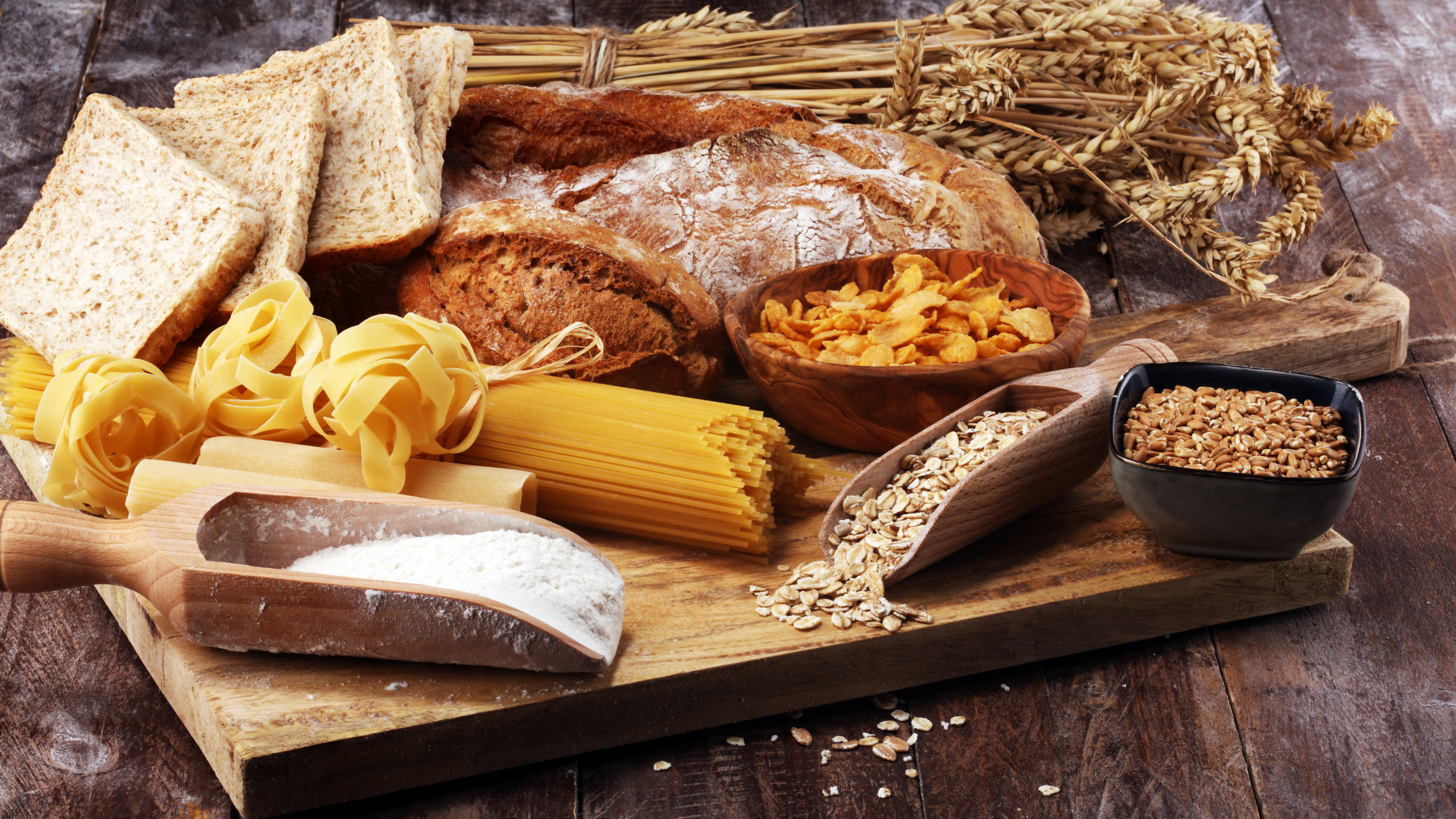
Best Choices for Complex Carbohydrates:
- Whole grains: Brown rice, quinoa, oatmeal, and whole wheat bread are rich in fiber and release energy slowly, keeping blood sugar levels stable.
- Sweet potatoes: A great source of complex carbs and fiber, they help sustain energy and stabilize mood.
- Legumes: Beans, lentils, and chickpeas are packed with nutrients and help regulate blood sugar.
Eating complex carbs provides steady energy and keeps you from experiencing sugar crashes, which can make stress feel more intense.
2. Omega-3 Fatty Acids: Brain Boosters for Stress Relief
Omega-3 fatty acids are essential fats that play a key role in brain health. Research suggests that these healthy fats can help reduce inflammation and support the production of mood-regulating neurotransmitters like serotonin and dopamine. Incorporating omega-3s into your diet can help you feel more emotionally balanced and less reactive to stress.
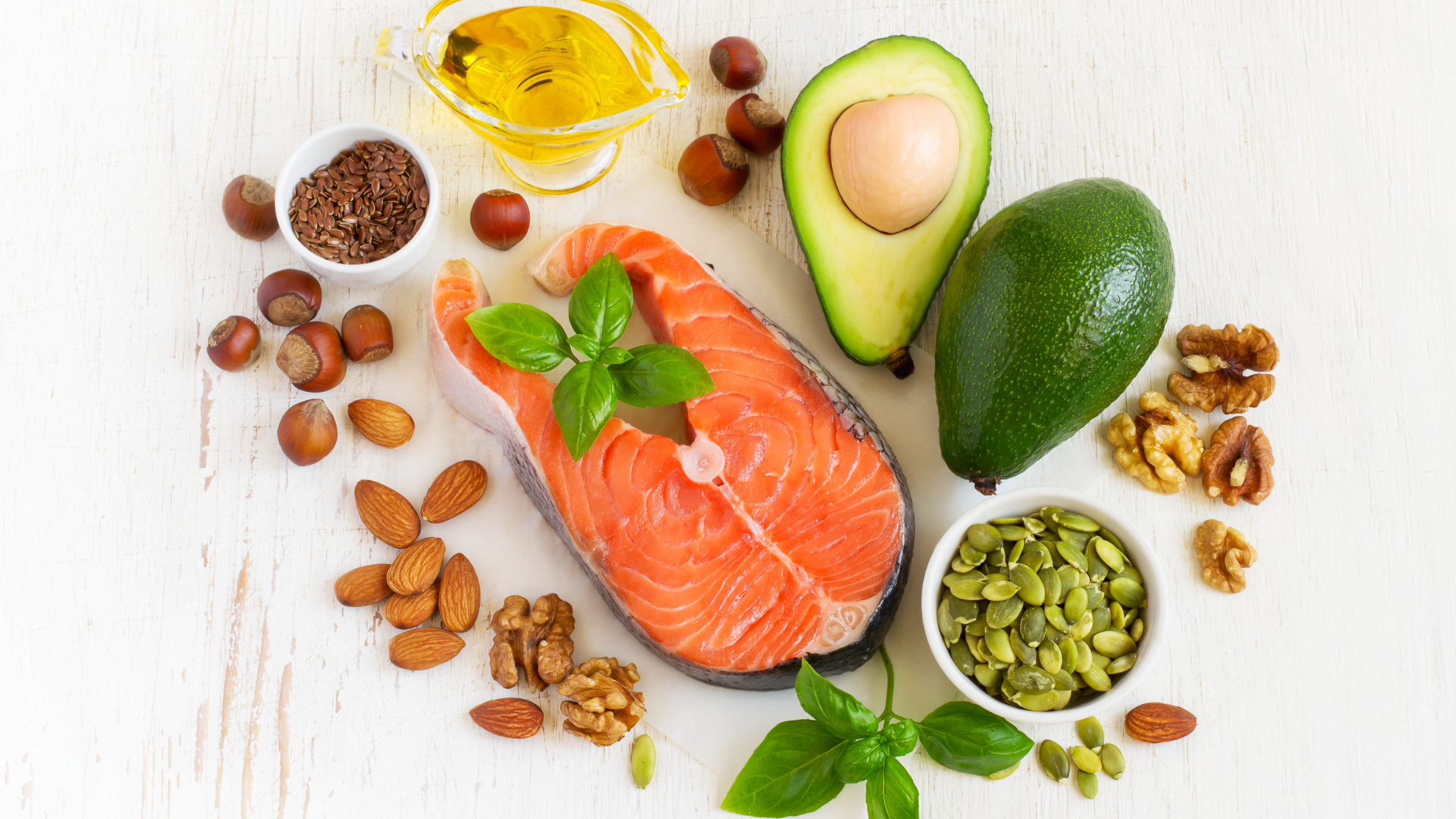
Best Sources of Omega-3s:
- Fatty fish: Salmon, mackerel, sardines, and tuna are excellent sources of omega-3 fatty acids.
- Chia seeds: A plant-based source of omega-3s, chia seeds are versatile and can be added to smoothies, oatmeal, or yogurt.
- Walnuts: Another plant-based source, walnuts make a great snack that promotes brain health and stress reduction.
Regular consumption of omega-3s can improve mood, cognitive function, and help you manage stress more effectively.
3. Magnesium-Rich Foods: Nature’s Relaxation Mineral
Magnesium is a mineral that plays a significant role in reducing stress and promoting relaxation. It helps regulate neurotransmitters, supports muscle relaxation, and is even involved in the body’s response to stress. Low levels of magnesium can lead to increased feelings of anxiety and tension.

Best Sources of Magnesium:
- Leafy greens: Spinach, kale, and Swiss chard are packed with magnesium.
- Nuts and seeds: Almonds, pumpkin seeds, and sunflower seeds are great for boosting magnesium levels.
- Avocados: A delicious source of magnesium and healthy fats that promote relaxation.
Incorporating magnesium-rich foods into your diet can help soothe your nervous system and keep stress at bay.
4. Probiotics: Supporting Gut Health for a Healthy Mind
There’s a strong connection between the gut and the brain, often referred to as the “gut-brain axis.” Stress can disrupt gut health, and an unhealthy gut can, in turn, lead to increased stress and anxiety. Probiotics, the beneficial bacteria found in fermented foods, help maintain a healthy gut microbiome, which supports emotional and mental well-being.
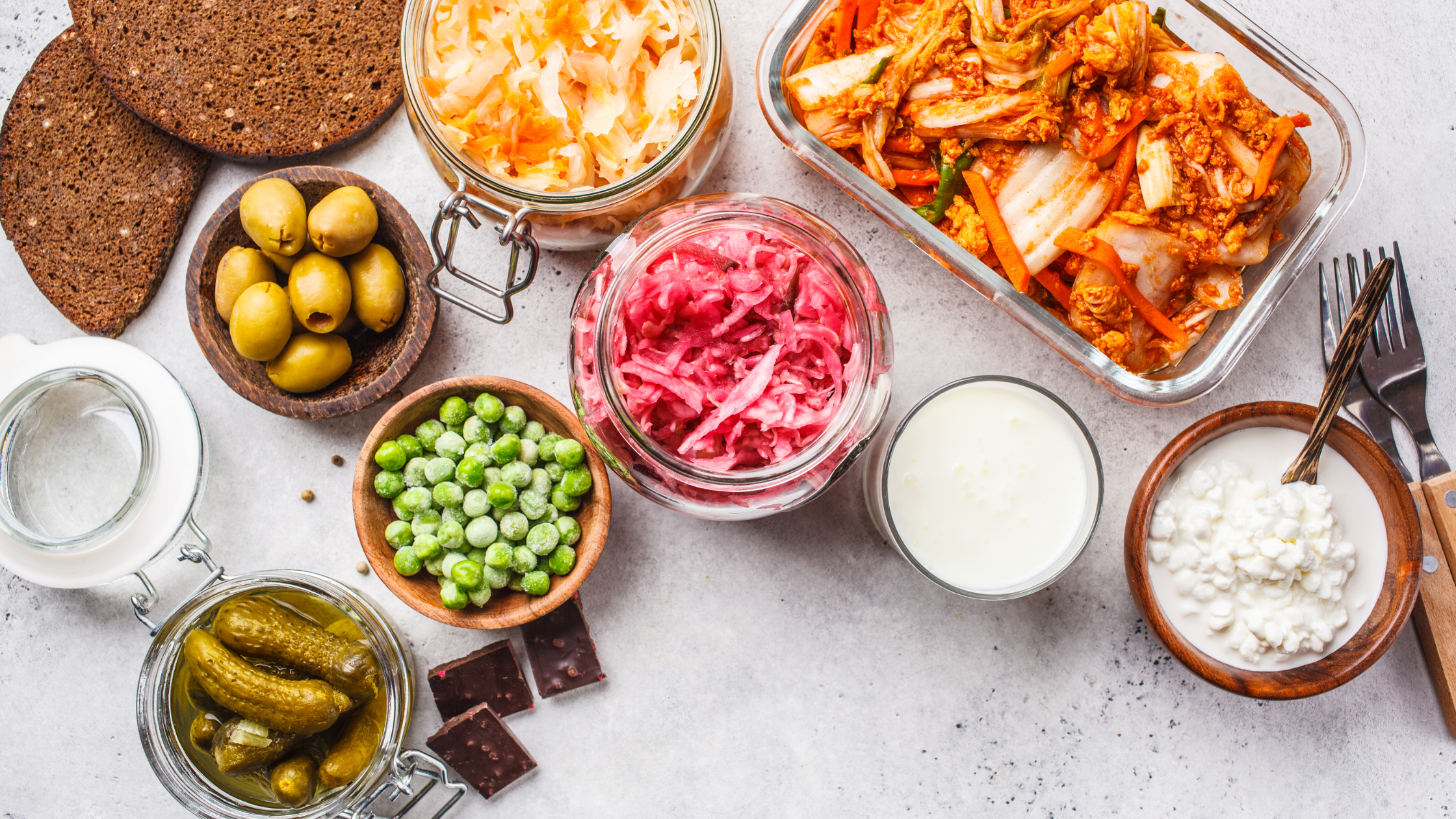
Best Sources of Probiotics:
- Yogurt: Look for plain, unsweetened yogurt with live cultures for the best probiotic benefits.
- Kimchi and sauerkraut: These fermented vegetables are rich in probiotics that support gut health.
- Kefir: A fermented dairy drink that’s packed with probiotics and promotes a healthy gut.
Maintaining a healthy gut with probiotics can help reduce stress, boost your mood, and improve overall mental health.
5. Herbal Teas: Natural Soothers for Stress
Certain herbal teas contain compounds that have been shown to reduce stress and promote relaxation. Incorporating herbal teas into your daily routine can help calm the mind and body naturally.
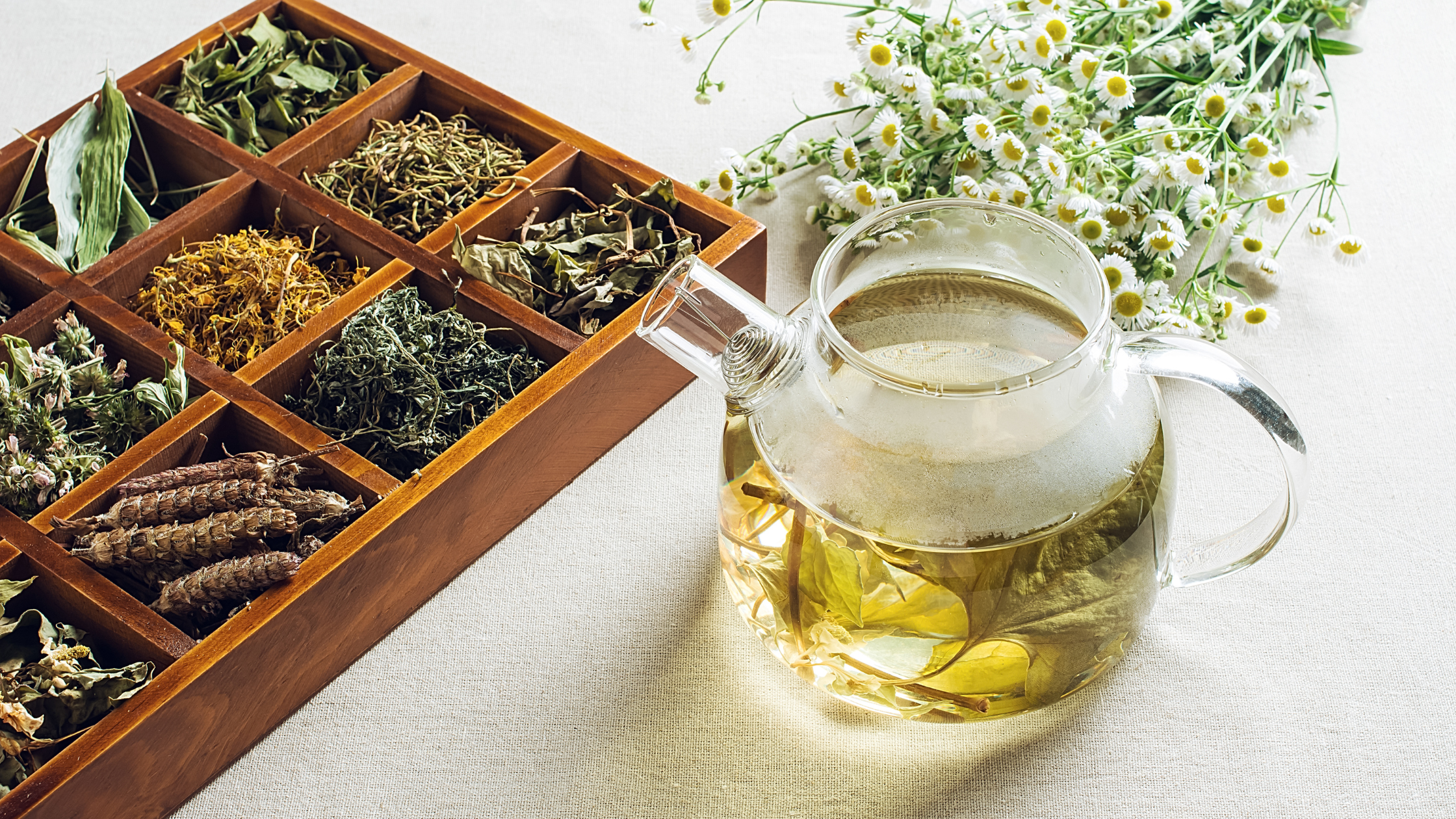
Best Herbal Teas for Stress Relief:
- Chamomile tea: Known for its calming properties, chamomile can help reduce anxiety and improve sleep quality.
- Peppermint tea: The menthol in peppermint has a natural muscle-relaxing effect, which can help alleviate stress.
- Lavender tea: This fragrant tea has been used for centuries to promote relaxation and reduce stress.
Sipping on a warm cup of herbal tea can be a simple and effective way to soothe your nerves and unwind after a long day.
6. Antioxidant-Rich Foods: Fighting Stress at a Cellular Level
Chronic stress can lead to oxidative damage in the body, which contributes to inflammation and other health issues. Antioxidant-rich foods help combat this by neutralizing harmful free radicals and reducing inflammation.
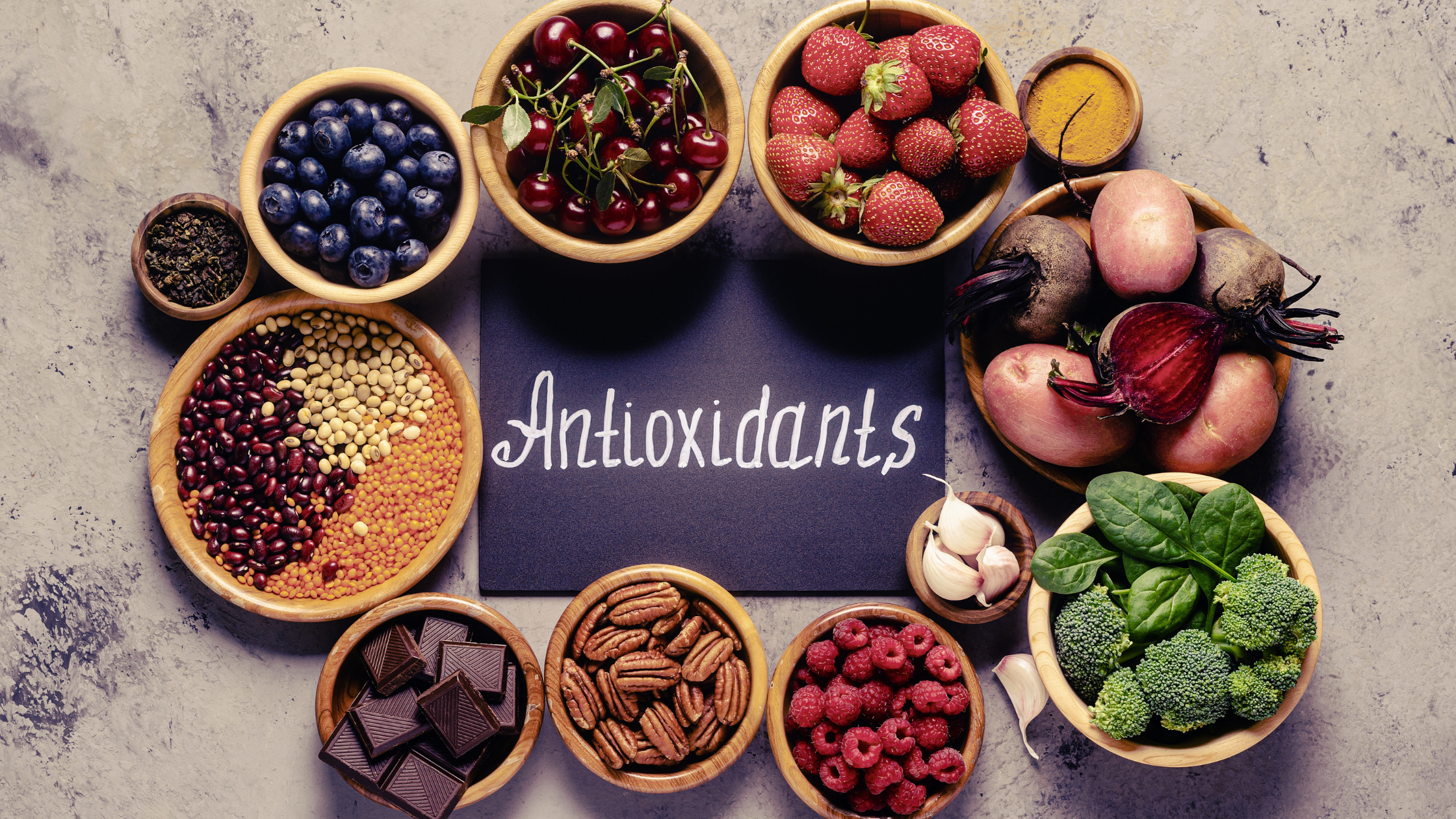
Best Sources of Antioxidants:
- Berries: Blueberries, strawberries, and raspberries are rich in antioxidants and have been shown to reduce stress.
- Dark chocolate: In moderation, dark chocolate can help lower cortisol levels (the stress hormone) and provide a mood boost.
- Green leafy vegetables: Kale, spinach, and broccoli are packed with antioxidants that support your body’s stress defense mechanisms.
Eating a diet rich in antioxidants not only helps protect your body from stress but also promotes overall health.
7. Hydration: The Often Overlooked Stress Reliever
Dehydration can exacerbate feelings of anxiety and stress, making it harder to concentrate and feel calm. Staying hydrated is essential for keeping your body and mind functioning at their best.

Tips for Staying Hydrated:
- Drink water throughout the day, aiming for at least 8 cups.
- Infuse your water with lemon, cucumber, or mint for added flavor and stress-relieving benefits.
- Incorporate hydrating foods like cucumbers, watermelon, and oranges into your diet.
Keeping your body properly hydrated can improve mood, enhance focus, and make you more resilient to stress.
Conclusion: Eat Your Way to Stress Relief
The foods you eat play a powerful role in how well you manage stress. By focusing on whole, nutrient-dense foods like complex carbohydrates, omega-3s, magnesium-rich options, and antioxidants, you can fuel your body and mind to better handle the pressures of everyday life.
Incorporating these stress-relieving foods into your daily diet is a simple, natural way to support your emotional well-being and reduce anxiety. Remember, balanced nutrition is a key component of stress management, so choose wisely and nourish your body for a calmer, healthier you.
